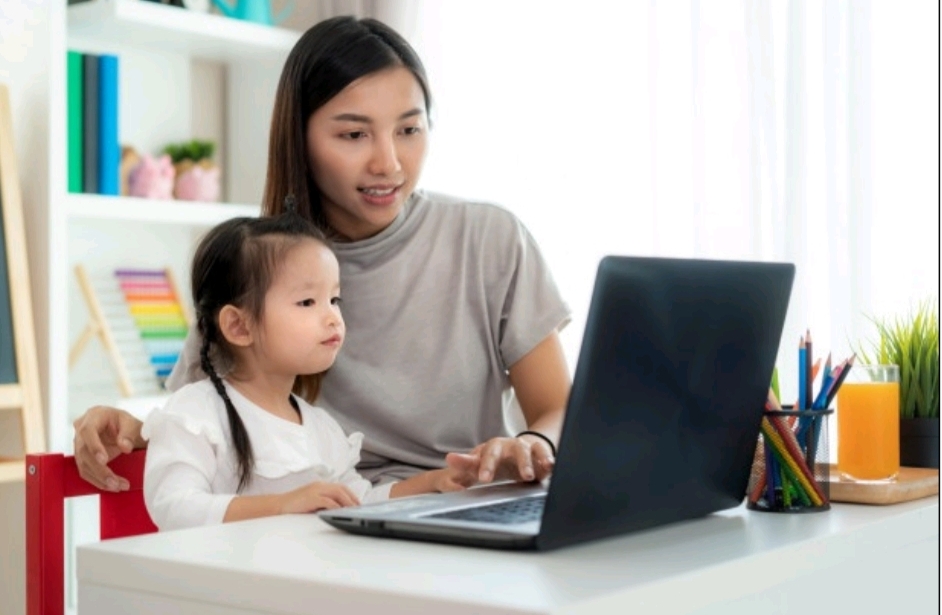The past year has been quite a challenge for students and educators alike. With the world suddenly being locked down amid a global pandemic, the shift to an online learning arrangement has presented quite a number of hurdles that, fortunately, the most passionate educators were able to jump through.
International-calibre educators from Domuschola International School (DIS) enumerate the lessons they have learned from the transition and how it has broadened the scope of modern education.

Prioritizing Well-BeingThe stresses of the pandemic and the ensuing lockdowns created a new layer of uncertainty that affected not only the students but also their parents as well. With that, modern e-Learning now also includes “well-being sessions” for the students and their families.“It’s partly educational and partly therapeutic,” said Mark Francisco, Head of Guidance at DIS. “Mental health is a huge part of learning. Students and families with such struggles will have a much harder time to learn.
Taking away some of those strains and struggles ensure that what we teach to the students are retained well,” Francisco continued.These well-being sessions are composed mostly of collaborative activities and events which involve check-ins and conversations that help gauge general feelings. They enable meaningful connections and find ways to make learning fun and engaging for all.
Less Is MoreA whole school year’s worth of online classes revealed that students have a tougher time focusing on their lessons in a remote education setting. So, apart from encouraging families to eliminate distractions, the teachers have also adjusted their respective curricula to be more focused and concise.“Through the past year we have adjusted our lessons to fill the gaps in learning to make sure that no student is left behind,” Jourdan Gan, DIS’ Head of School, said.
“With more concise lessons, we can maximize the time in which the students are engaged and lessen opportunities for distraction,” Gan added.Beyond ‘Zoom’The Zoom Meeting app has become the most popular video conferencing program enabling work- and learn-from-home arrangements during the pandemic.
Despite its popularity however, video conferencing platforms do have their limitations. Educators have identified many other applications that they can use to enhance the learning experience through extensive research of Information and Communications Technology (ICT) and applying it into the real world.
Flip Grid, a social media education app, which has made doing school exercises and reports easier; Pinterest has become a good way to provide inspiration for creative activities; and Google Classroom allows for easier sharing of files between students and teachers. It is this sort of diversified approach to learning that personifies and embodies the International Baccalaureate program, which is being taught to students as young as the primary level — a milestone for international schools in the Philippines.
The Real Power of Learning The pre-pandemic notion of learning was always viewed as a service; schools were service providers and parents/students are the customers. According to Bambi R. Fernandez de Castro, Head of Administration of DIS, the paradigm has drastically shifted and education is now more partnership-oriented. “The schools, families, and students now have a deeper grasp of the challenges that each party faces,” Fernandez de Castro clarified.
“Inclusive and thoughtful education as in the Enhanced Learning program goes beyond the four walls of the classroom, and takes stock of what needs to be addressed before barrelling forward,” they further explained. “This helps all three stakeholders, the schools, the families, and the students, build a space for learning that is tailored to their needs and capabilities.
”All parties use this space to learn important lessons that help them navigate a pandemic-influenced landscape.Prepared for AnythingOn the operational side, if there is anything that educators learned from dealing with the pandemic, it’s to be prepared for any eventuality.
“Preparation was key in making the transition to online learning relatively painless,” Fernandez de Castro continued. “When the first lockdown was initiated, it was fortuitously close to the end of the school year, so we had time to anticipate how things may change in the coming year,” she further explained.
Fernandez de Castro added that, while there were no definite answers back then, they knew that they had to ensure that their ICT facilities were in good shape, especially in terms of data security and privacy. Another major consideration for DIS was the health and safety of the staff, teaching or otherwise, as well as their continued upskilling. It is this kind of readiness that makes DIS confident that they are ready for almost any eventuality.
“More than just skills however, what makes the DIStance Learning Program a success is the positive attitudes of the teachers when we shifted to online learning,” she emphasized. “The wellspring of care and compassion that they have drawn from in order to accomodate the trials and challenges of these uncertain times is truly inspiring, and what we as educators feel is the real differentiator of this program as compared to other learning arrangements..”




